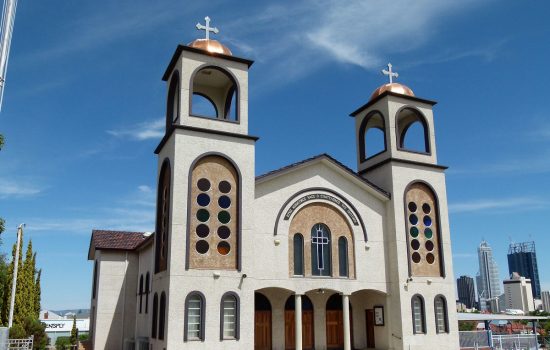The following article was written by Father Emmanuel in 1997 when he was a Deacon.
Success in today’s world is often measured by the ability of people to plan, organise and manage their work. The successful application of these business principles requires dedication, expertise, standards, skills, time and resources. To achieve specified ends, much attention is given to detail. The process is usually all engrossing with the primary motive being the realisation of profit. The organisational model employed comes with a language of key words embracing such notions as strategic planning, marketing, product development and so on. Every school, hospital, government agency, private corporation and family business is compelled to work within this framework if it is to survive and strengthen its position for success in a competitive, commercialised and market driven world.
THE PEOPLE OF THE FIRM
The people who serve these organisations are referred to as human resources. They represent the means by which corporate goals are realised and whose worth is based on productivity. This way of thinking places all its trust in the human experience. Under this system a person’s true identity and relationship to God is not acknowledged. In these spiritually lifeless corporate environments good employers are hard to come by. More often than not they are impersonal managers who respond only to the demands of the external environment.
THE PEOPLE OF THE CHURCH
Christians must take particular care not to allow this secular thinking to find its way through to the Church. Not that the Church is subject to the secular spirit but that its members are. For there is an enormous difference between the Church which is the Body of Christ and religious activity or religious organisation. “Religion” says Bishop Hierotheos of Nafpaktos “speaks about an impersonal God who inhabits the Heavens and manages the world from up there. But the Church is the Body of Christ who assumed human nature and in this way there exists a communion between man and God, in the Person of Christ.” (Bishop Hierotheos of Nafpaktos, Secularism in the Church, Theology and Pastoral Care, 1997 pp.6) Our communion with each other must therefore always include Christ, the Logos, for in Him all people are loved sharing a common and special purpose and identity.
ETHICS
Without a knowledge of God organisations rely on the empty notion of ‘ethics’ to govern their people in business affairs. For this is the counterfeit code of conduct left to those who have lost the vision of God and the Commandments. Out of necessity organisations develop explicit codes of ethical behaviour to fill the vacuum created by society’s abandonment of God’s law in an attempt to arrest the damaging corruption stemming from ailing community standards. Corruption stems from those who resist the truth of God’s Word; it cannot be corrected by compliance to worldly defined ethical behaviour. Without God man remains corrupt, it is only through Christ that we “put on the new man which was created according to God, in true righteousness and holiness.” (Eph. 4:24)
It is particularly interesting to see how ethics are used to control and compensate for the loss of spirituality in the world so that people learn to relate to each other on the basis of corporate policy which is in itself lifeless and self serving. Ironically this is the most inefficient method of achieving effective working relationships because it is externally imposed requiring costly and cumbersome supervision and monitoring. Those who possess a knowledge of God however have their responsibility and accountability clearly defined, through God’s will, which reaches the depths of their heart and soul and is relevant to their whole person.
Through this knowledge and love of God is found true respect, dignity, communion, patience, endurance, happiness, joy, purpose and value, in ourselves and for each other, to the Glory of God. Only God’s love finds value in people. Only God’s love shows purpose. Only God’s love teaches forgiveness, love and compassion, which is the only source of true co-operation. The world loves to talk about co-operation, but it is not interested in finding it because it refuses to know Christ who unites all through Him and in Him.
THE RELIGIOUS ORGANISATION
But let there be no mistake, the worldly spirit can find its way through to members of the Church. The central role of the Church is to offer spiritual healing and salvation through Christ. Where Church members become preoccupied with other matters, they “simply satisfy their so-called religious feelings and nothing more.” (Bishop Hierotheos of Nafpaktos, Secularism in the Church, Theology and Pastoral Care, 1997 pp.6)
“The secularised Church” says Bishop Hierotheos, “is occupied with human thought and abstract ideas.” Unfortunately, today some view the Church as a necessary organisation, useful for society, its role valued according to its social usefulness.” These people see that the Church should function in an anthropocentric way, where the main focus of activity is to serve man, rather than God.
The knowledge of God however is not an intellectual experience but a spiritual experience as was the experience of the first Church gathering at Pentecost. Those who are preoccupied with the worldly spirit in the Church can become entrenched and obstructive to the faithful servants of Christ because their purpose is to achieve objectives different to those of the true Church. Their objectives are akin to those belonging to private organisations focused on programs and activities that soak up all the time and energy without improving the Sacramental life of the people for whom the Church is there for.
Fr Emmanuel Stamatiou


















